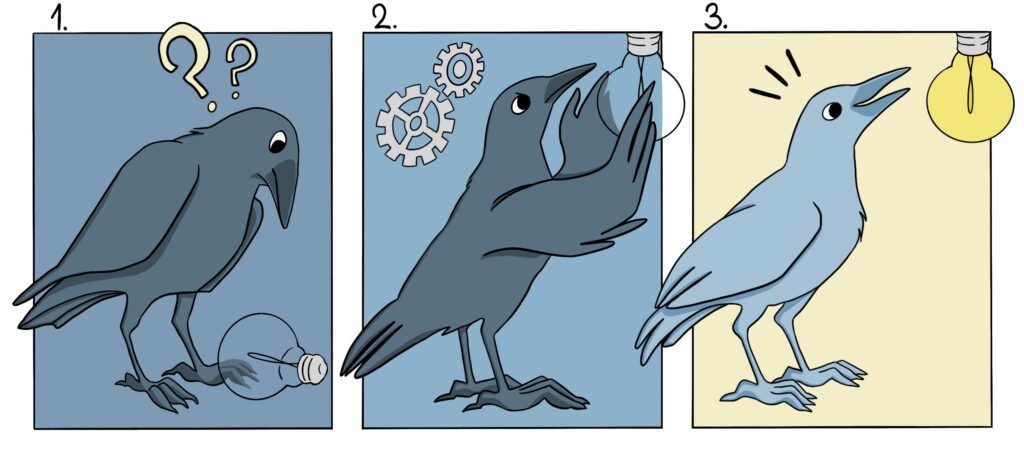- Career Hub
- Future Skills
- Academic planning
- Planning further studies
- Planning your studies
- How to manage your studies?
- How to plan for your studies?
- How much freedom do you have to modify your studies?
- When to make learning choices within the curriculum?
- How little or how much can you study?
- How can you concentrate on and manage the time of studies?
- How to change specialisations?
- How to study well?
- Internship
- International experience
- Work-life development
- Act and grow
Problem solving

Problem solving is the ability to analyse and understand the nature of a problem, to see possible solutions, to evaluate them and to choose and implement the most appropriate one. Solving a problem starts with recognising the problem and making a plan of action. In order to find a solution, you need to be able to gather relevant information, consider the situation from different angles and understand the possible consequences of different solutions. Solutions are forward-looking and take into account the changing world and different perspectives.
The solutions chosen must also be implemented. It requires the ability to cope with uncertainty: to act effectively in uncertain situations, to adapt to change, and to change the way you act when things do not go as planned.
| A moment of refelection: How often do you find yourself in a situation where it is difficult to find a solution? Where do you start? Do you determine the nature of the problem and look for more information before finding a solution? Do you like solving problems and why? In today’s world, things can change quickly – are you good at changing your original plan on the go? What helps you find and implement solutions? |
Inspiration to take action
- Look at problem-solving techniques and try to use them in a situation: formulate the problem, then analyse it, write down the solutions, implement your chosen course of action and finally evaluate the effectiveness of your actions.
- State or write down the problem in detail for yourself. Find out the root causes, the real reasons and ask “Why?”.
- Brainstorm – write down all the solutions that come to mind, no matter how silly or useless they seem. Set yourself a time limit (e.g. four minutes) and try to write without interruption.
- If the solution seems hard to find, break it down into smaller parts and find a solution for each part.
- Ask for advice – your problem may need the expertise of a specialist or someone with more experience.
- Share your experiences with others. This may prove useful in solving your own problems as well as those of others.
- If you get stuck, do not give up. Keep in mind that there is often no one right solution. Be creative.
- Make solving problems a habit. If you notice something that you think is inefficient (while walking down the street, in a lecture, using a device or system, etc.), try to think of ways to improve it.
- Grow a flexible mindset – weigh up the pros and cons of different solutions and the wider opportunities and consequences of adopting them.
- You can develop your problem-solving skills both during the specialised studies and when doing research.
- Read about problem solving on peaasi.ee and check out the worksheet there.
